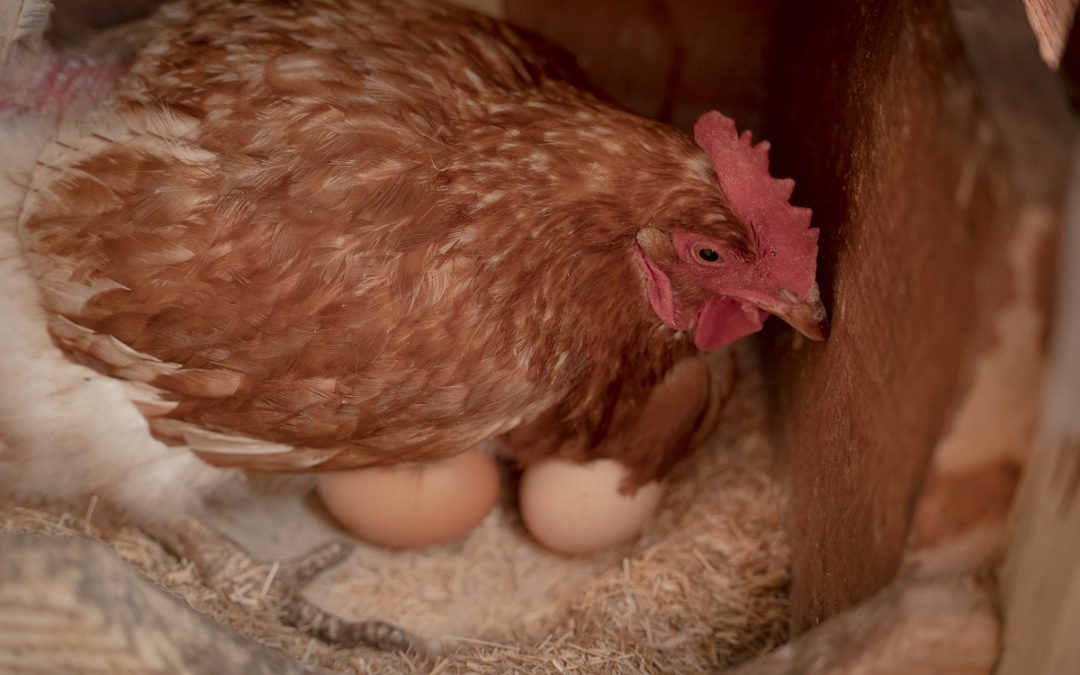You can’t be a backyard chicken keeper without the chickens, but how do you know which breeds are the best chickens for egg production?
After all, if a sustainable source of food is why you have backyard chickens to begin with, and you’ve already invested hundreds of dollars in everything you need to get started, you’ll want to be sure you choose the best chickens for eggs.
But First, a Confession
I have to tell you now that I don’t kill my hens for consumption. I actually don’t eat chicken at all. As a family, we didn’t even stop eating chicken on purpose…it kinda happened naturally over the course of the last few years that we as a family slowly fazed out eating poultry.
One day we realized that we hadn’t eaten chicken in months…and didn’t miss it…so we haven’t purchased it since.
But, I have no issue with anyone’s choice to eat chicken or to raise chickens specifically for meat consumption. What you do in your backyard is your business!
Egg Layers vs. Meat Chickens
Chickens fit primarily into three large categories in the farming world.
Egg layers, meat birds and dual-purpose chickens. The purpose of each type is pretty obvious:
Egg Laying Chicken Breeds
The chicken breeds listed below are the best chickens for egg production. These breeds will lay a gorgeous egg every day in their first year, 5-7 per week in their second year, and 3-5 eggs per week in their third year. These hens produce fewer eggs every year until they stop entirely around year 4 or 5.
I have some hens that are four years old and are still laying five or six eggs per week!
Most hens don’t lay eggs in the winter or stop briefly in early spring unless you supply a light on a timer in their coop to trick them into thinking that it’s still summer.
I like to give my ladies a break, so I don’t have a light in their coop.
And to answer a very common question – you don’t need a rooster for your hens to lay eggs. They’ll naturally start laying with they reach maturity.
If you want prolific egg layers, purchase the following breeds:
- Anacona (white eggs)
- Araucana (depends on mix)
- Barnvelder (reddish brown eggs)
- Cream Legbar (blue/green eggs)
- Hamburg (white eggs)
- Leghorn (white eggs)
- Marans (dark brown eggs)
- Minorca (white eggs)
- Red Sex Link (brown eggs)
- Silkie (pale cream egg, small in size)
Meat Chickens
Chickens that fall into this category do so because they grow quickly, become large, and their meat remains tender.
Hens bred to be meat birds will still lay eggs, but not as frequently as the egg layers listed above.
You can eat egg layers from the list above, but because their body’s resources went into egg-production and not muscle production, you’ll have to resort to pressure cooking or stewing to enjoy a meal made of a prolific egg layer.
Meat birds, on the other hand, will look more like the chicken you’re used to purchasing in the supermarket with ample breast, thigh, and drum muscle. The meat will also be tender and do well with all types of cooking methods.
They also grow quickly, meaning less feed needed to get a return on your investment.
Here’s a list of the best chickens for meat:
- Bresse
- Cornish
- Jersey Giant
- Orpington
Best Chickens for Eggs and Meat
In this category, the farmer gets the best of both worlds with hens that are prolific layers, are large birds, and whose meat will remain tender.
Best dual-purpose birds are:
- Australorpe
- Cochin
- Croad Langshan
- Delaware
- Dominique
- Dorking
- Feverolles
- Holland
- Lincolnshire Bugg
- Plymoth Rock
- Sussex
- Welsummer
- Wyandotte
Can Different Chicken Breeds Live Together?
The answer to this question is a bit of a complicated one and is both yes and no.
Chickens have a strict and vicious pecking order that is true across all breeds. A new chicken that’s introduced to the flock, regardless of the breed, will be attacked and pecked at.
How serious the injuries will depend on type of breed you have already…some are more docile than others.
It is possible to introduce a new hen to an existing flock, but this needs to be done slowly, with care, and possibly with the help of chicken peepers. (They’re hilarious…look them up!)
I use chicken peepers on my existing hens when I bring a new lady home. After a couple of weeks, everyone is chill, and the peepers can come off.
But let’s assume that you’re starting with a new flock, and you have the opportunity to pick a mixed variety of hens for your backyard coop.
If you’re purchasing hens strictly for egg-laying, you can mix any breed you’d like.
If you’re allowed to have roosters in your area and would like to raise chicks, then it’s best to stick to one specific breed. Crossbreeding may result in health issues.
Check Your Bylaws
As a Toronto resident, I’m not allowed to raise chickens for meat consumption. The pilot program currently underway only allows the keeping of chickens for eggs.
And the owner cannot give or sell the eggs to anyone.
It’s important to check carefully with your local bylaws to ensure that your plans fit with the rules and regulations for your area.
Nothing would be worse than to have your dreams of a chicken and egg empire cut short by being poorly informed from the get-go.
How to Kill a Chicken
There’s very little I can say in this area since all my hens have lived long lives and died of natural causes, but I did grow up in a culture and household that killed chickens for consumption regularly, and I saw a wide variety of life-ending processes.
As mentioned above, I do not kill my hens for consumption, but I believe in your right to do so if you are allowed to in your area and if you choose to do so.
What I will say is, please do your research on the most humane way to end the life of a chicken.
Your granny’s way of doing it may not be the most humane. It may cause unnecessary fear and pain in the final moments of that beautiful and intelligent creature’s life.
One of the best articles I found on the subject was written by a vet. You can access the article here.
My mission, as stated on my homepage, is to show the world how smart, beautiful and extraordinary chickens are.
I hope you, as a new chicken owner, will see what I see when I look at my flock and will treat your ladies with love and respect at all stages of their lives…and especially at the end.


